Related Research Articles

Sudan, officially the Republic of the Sudan, is a country in Northeast Africa. It borders the Central African Republic to the southwest, Chad to the west, Libya to the northwest, Egypt to the north, the Red Sea to the east, Eritrea and Ethiopia to the southeast, and South Sudan to the south. Sudan has a population of 50 million people as of 2024 and occupies 1,886,068 square kilometres, making it Africa's third-largest country by area and the third-largest by area in the Arab League. It was the largest country by area in Africa and the Arab League until the secession of South Sudan in 2011; since then both titles have been held by Algeria. Sudan's capital and most populous city is Khartoum.

The history of Sudan refers to the territory that today makes up Republic of the Sudan and the state of South Sudan, which became independent in 2011. The territory of Sudan is geographically part of a larger African region, also known by the term "Sudan". The term is derived from Arabic: بلاد السودان bilād as-sūdān, or "land of the black people", and has sometimes been used more widely referring to the Sahel belt of West and Central Africa.
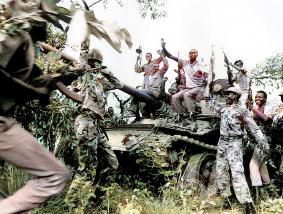
The Second Sudanese Civil War was a conflict from 1983 to 2005 between the central Sudanese government and the Sudan People's Liberation Army. It was largely a continuation of the First Sudanese Civil War of 1955 to 1972. Although it originated in southern Sudan, the civil war spread to the Nuba mountains and the Blue Nile. It lasted for almost 22 years and is one of the longest civil wars on record. The war resulted in the independence of South Sudan 6 years after the war ended.
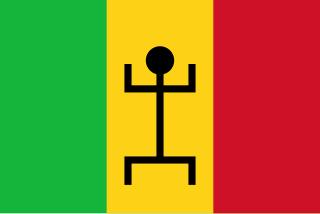
The Mali Federation was a federation in West Africa linking the French colonies of Senegal and the Sudanese Republic for two months in 1960. It was founded on 4 April 1959 as a territory with self-rule within the French Community and became independent after negotiations with France on 20 June 1960. Two months later, on 19 August 1960, the Sudanese Republic leaders in the Mali Federation mobilized the army, and Senegal leaders in the federation retaliated by mobilizing the gendarmerie ; this resulted in a tense stand-off, and led to the withdrawal from the federation by Senegal the next day. The Sudanese Republic officials resisted this dissolution, cut off diplomatic relations with Senegal, and defiantly changed the name of their country to Mali. For the brief existence of the Mali Federation, the premier was Modibo Keïta, who would later become the first President of Mali, and its government was based in Dakar, the eventual capital of Senegal.

Johannes Pieter "Jan" Pronk Jr. is a retired Dutch politician and diplomat of the Labour Party (PvdA) and activist.

Salva Kiir Mayardit, also known as Salva Kiir, is a South Sudanese politician who has been the President of South Sudan since its independence on 9 July 2011. Prior to independence, he was the President of the Government of Southern Sudan, as well as First Vice President of Sudan, from 2005 to 2011. He was named Commander-in-Chief of the Sudan People's Liberation Army (SPLA) in 2005, following the death of John Garang.
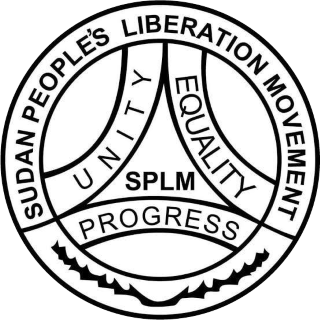
The Sudan People's Liberation Movement is a political party in South Sudan. It was initially founded as the political wing of the Sudan People's Liberation Army in 1983. On January 9, 2005 the SPLA, the SPLM and the Government of Sudan signed the Comprehensive Peace Agreement, ending the civil war. SPLM then obtained representation in the Government of Sudan, and was the main constituent of the Government of the then semi-autonomous Southern Sudan. When South Sudan became a sovereign state on 9 July 2011, SPLM became the ruling party of the new republic. SPLM branches in Sudan separated themselves from SPLM, forming the Sudan People's Liberation Movement–North. Further factionalism appeared as a result of the 2013–2014 South Sudanese Civil War, with President Salva Kiir leading the SPLM-Juba and former Vice President Riek Machar leading the Sudan People's Liberation Movement-in-Opposition.
The Government of Sudan is the federal provisional government created by the Constitution of Sudan having executive, parliamentary, and the judicial branches. Previously, a president was head of state, head of government, and commander-in-chief of the Sudanese Armed Forces in a de jure multi-party system. Legislative power was officially vested in both the government and in the two houses – the National Assembly (lower) and the Council of States (upper) – of the bicameral National Legislature. The judiciary is independent and obtained by the Constitutional Court. However, following the Second Sudanese Civil War and the still ongoing genocide in Darfur, Sudan was widely recognized as a totalitarian state where all effective political power was held by President Omar al-Bashir and his National Congress Party (NCP). However, al-Bashir and the NCP were ousted in a military coup on April 11, 2019. The government of Sudan was then led by the Transitional Military Council (TMC). On 20 August 2019, the TMC dissolved giving its authority over to the Transitional Sovereignty Council, who were planned to govern for 39 months until 2022, in the process of transitioning to democracy. However, the Sovereignty Council and the Sudanese government were dissolved in October 2021.

The politics of South Sudan concern the system of government in the Republic of South Sudan, a country in East Africa, and the people, organizations, and events involved in it.
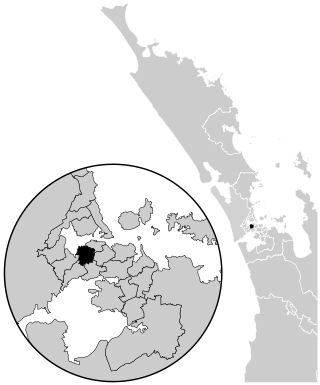
Mount Albert is a parliamentary electorate based around the suburb of Mount Albert in Auckland, New Zealand, returning one member of Parliament (MP) to the House of Representatives. It has elected only Labour Party MPs since it was first contested at the 1946 election. The electorate is currently held by Helen White and was recently represented by Jacinda Ardern, formerly Prime Minister of New Zealand, who was first elected in a 2017 by-election and stepped down from parliament on 15 April 2023. Before her, Mt Albert was represented by David Shearer from 13 June 2009 to 31 December 2016; it was represented by Helen Clark from the 1981 general election until her resignation from Parliament on 17 April 2009.
The Sudanese Communist Party – Revolutionary Leadership was a communist party in Sudan. It emerged as a pro-Chinese split, after internal division inside the Sudanese Communist Party in August 1964.

The Abyei Area is an area of 10,546 km2 or 4,072 sq mi on the border between South Sudan and Sudan that has been accorded "special administrative status" by the 2004 Protocol on the Resolution of the Abyei Conflict in the Comprehensive Peace Agreement (CPA) that ended the Second Sudanese Civil War. The capital of the Abyei Area is Abyei Town. Under the terms of the Abyei Protocol, the Abyei Area is considered, on an interim basis, to be simultaneously part of both the Republic of South Sudan and Republic of Sudan, effectively a condominium.

David James Shearer is a New Zealand United Nations worker and politician. He was a member of the New Zealand Parliament for the Labour Party from 2009 to 2016, serving as Leader of the Opposition from 2011 to 2013.
Labour Party or Labor Party is a name used by many political parties.

South Sudan, officially the Republic of South Sudan, is a landlocked country in Central/East Africa. It is bordered on the north by Sudan; on the east by Ethiopia; on the south by the Democratic Republic of the Congo, Uganda and Kenya; and on the west by Central African Republic. South Sudan's diverse landscape includes vast plains and plateaus, dry and tropical savannahs, inland floodplains, and forested mountains. The Nile River system is the defining physical feature of the country, running south to north across its center, which is dominated by a large swamp known as the Sudd. South Sudan has a population of 12.7 million. Juba is the capital and largest city.

The following outline is provided as an overview of and topical guide to South Sudan:
The International Communist Seminar (ICS) was an annual communist conference held in May in Brussels, Belgium. It was organized by the Workers' Party of Belgium (WPB).
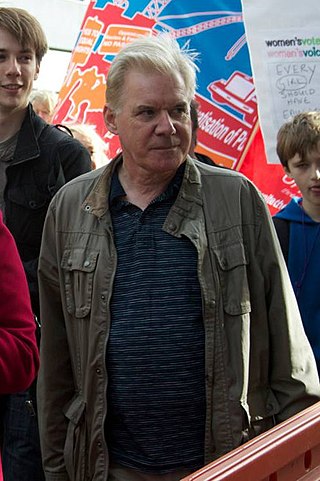
Bill Bonnar is a founding member of the Scottish Socialist Party.

Ibrahim Omer is a New Zealand politician. He was a Member of Parliament for the Labour Party from 2020 to 2023.